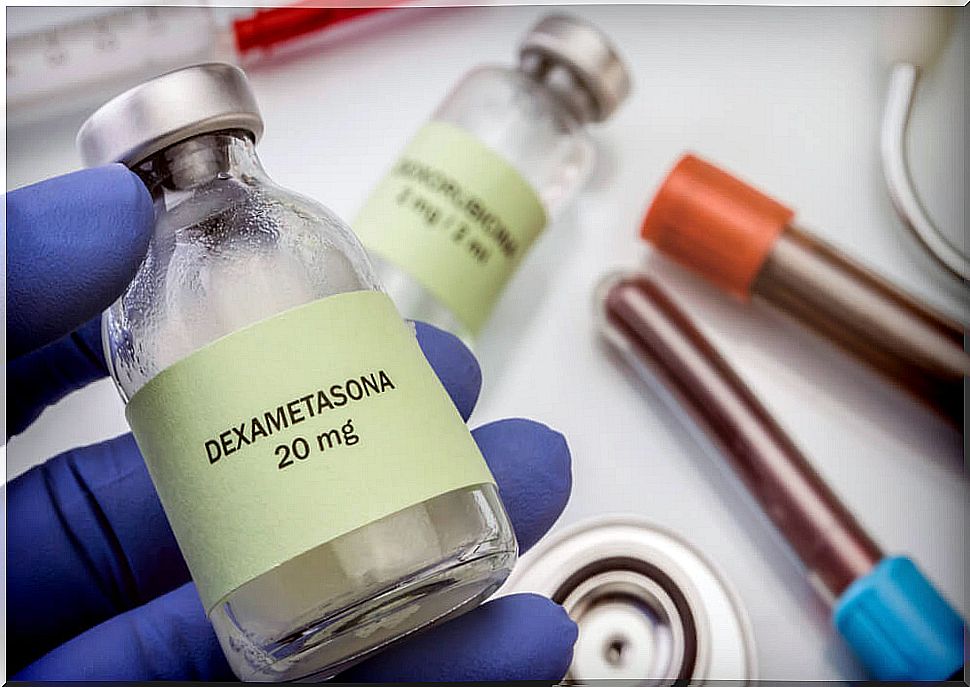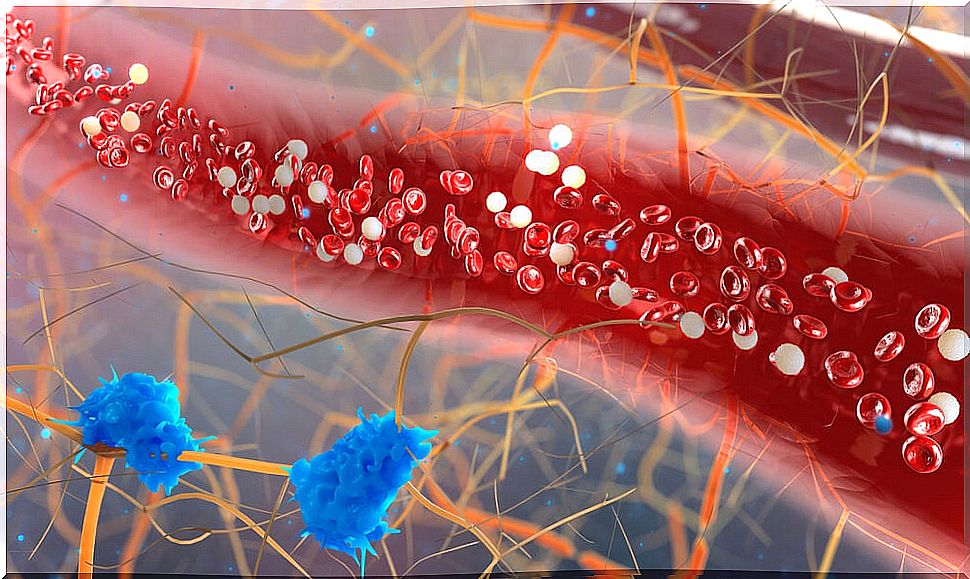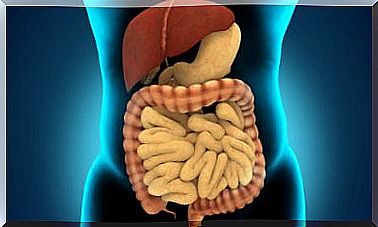Dexamethasone: Pharmacological Actions And Mechanism Of Action
Dexamethasone is a glucocorticoid used primarily by mouth. It is used in numerous clinical pictures that present with significant inflammation or in certain forms of rheumatoid arthritis.
To understand why it is effective in so many diseases, we will now take a closer look at the following aspects of this drug:
- Mechanism of action.
- Pharmacokinetics.
- Pharmacological actions.
- Adverse reactions and precautions.
Mechanism of action of dexamethasone

The mechanism of dexamethasone is very similar to that of typical steroids. For corticosteroids, there are two types of receptors in the cytoplasm of cells, where they will trigger their action:
- GR or type II, is widely expressed and is specific to trigger the actions of glucocorticoids.
- On the other hand, there is MR or type I, which is found in epithelial cells of the kidney, colon and salivary glands, and in non-epithelial cells of the brain and heart.
Therefore, dexamethasone modulates the transcription of proteins necessary to carry out its anti-inflammatory function. This modulation can be positive, if it increases the synthesis of a given protein, or negative if it inhibits it.
Pharmacokinetics of dexamethasone
This drug is administered both orally and topically. By both routes it presents a good absorption.
Despite this, the longest effect would be achieved intramuscularly despite the fact that this administration is one of the most painful. Other important aspects are the following:
- It binds to plasma proteins, specifically transcortin and albumin.
- Presents hepatic metabolism.
- It is eliminated by 90% in the urine.
Pharmacological actions
Dexamethasone is a corticosteroid, that is, it is used to replace it when the body does not make enough. It can also be prescribed for other uses.
Metabolic actions

It has a hyperglycemic action , that is, it increases blood glucose levels. In addition, it decreases the uptake of glucose by the cells of the tissues. It also redistributes body fat.
On the other hand, it has the property of destroying proteins, also reducing their synthesis. It also retains sodium and removes potassium.
Musculoskeletal actions
Dexamethasone can cause muscle weakness, fatigue, or myopathy. As for the bone, it increases the excretion of calcium, inhibits its reabsorption and favors the destruction of bone proteins. All of this can lead to osteoporosis or osteopenia.
Anti-inflammatory actions

This property is one of the most important of dexamethasone and is due to its ability to:
- Inhibit the immediate and late manifestations of the inflammatory process.
- Block COX-2 responsible for the synthesis of prostaglandins.
- Block the iNOS nitric oxide generator.
- Inhibit the release of histamine, useful in allergic processes.
- Interfere with the function of fibroblasts and endothelial cells.
- Inhibit bradykinin, a vasodilator hormone.
- Stabilize the lysosome membrane of phagocytic cells.
Read: Types of hormones: which are the most important?
Immunosuppressive actions
Along with the anti-inflammatory actions, they are the actions that characterize dexamethasone. This drug has a high immunosuppressive potency, since it is capable of inhibiting the production and action of interferon gamma by T lymphocytes.
On the other hand, it also induces apoptosis or cell death of the maturing B lymphocytes and of the immature or mature T lymphocytes that are activated.
Adverse reactions and precautions

Due to its large field of action, the adverse effects of dexamethasone are numerous. One of the best known in Cushing’s syndrome, which appears when there is a high amount of glucocorticoids.
If this situation is the opposite, we are talking about Addison’s disease. It may also appear:
- Osteoporosis.
- Hyperglycemia.
- Cardiovascular risk.
- Gastroduodenal ulcer.
- Increase in blood pressure by retaining water and sodium.
- Increase in the number of infections due to its immunosuppressive effect.
- Decreased growth in children, as it inhibits growth hormone.
Due to all these adverse reactions, caution should be exercised when administering the drug. There is no absolute contraindication, but its administration should be monitored in patients suffering from serious infections, congestive heart failure, osteoporosis, hypertension, pregnancy or an allergy to corticosteroids.
In particular, it is recommended that patients with kidney failure, glaucoma, diabetes or peptic ulcer not take dexamethasone.
[featured-post url = ”https://mejorconsalud.as.com/6-vitaminas-combatir-la-inflamacion/”









